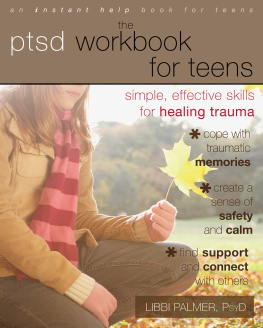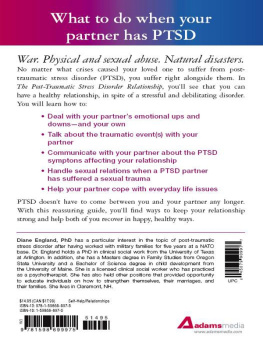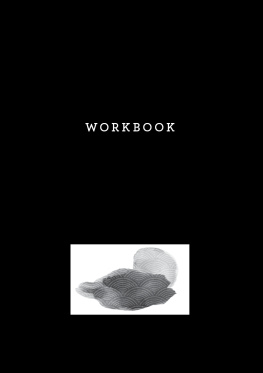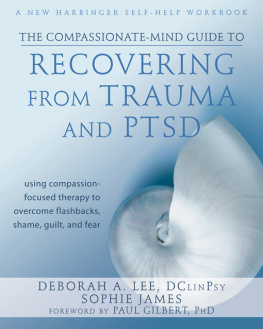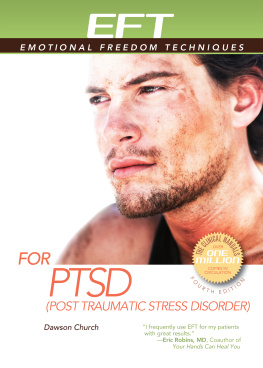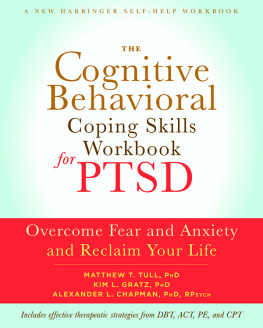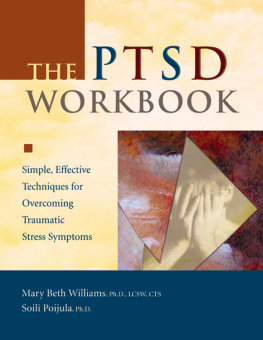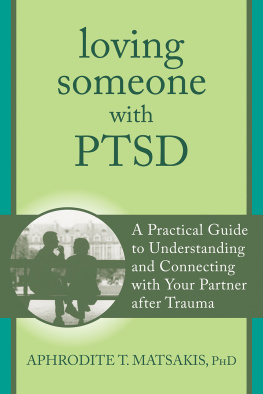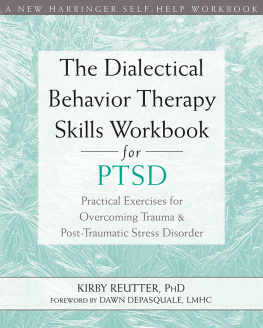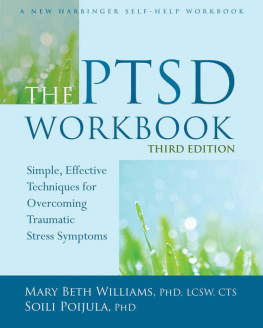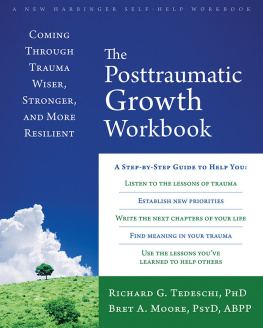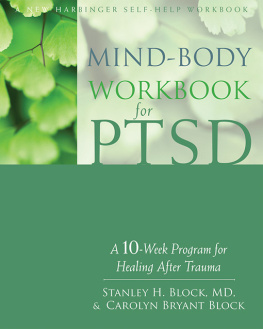
Libbi Palmer, PsyD, is a licensed psychologist in the Denver, CO, area. She specializes in working with victims of crimes and other trauma. She is also an adjunct professor at the University of Northern Colorado, where she teaches a course about recovery from disaster and trauma.
To date, resources specifically for traumatized teens have not been readily available, despite the fact that many experience traumatic events during childhood and into their teen years. This book, The PTSD Workbook for Teens, offers much-needed information aimed at the special needs of this population. Author Libbi Palmer addresses the main after-effects of trauma and offers practical information and worksheets to help teen readers work through their symptoms and reestablish safety, personal control, and positive self-esteem. I highly recommend it.
Christine A. Courtois, PhD, ABPP, psychologist and author of Treating Complex Traumatic Stress Disorder, and The Treatment of Complex Trauma
Palmer has provided teens with a terrific resource to understand, process, and heal from trauma. The book is quite comprehensive but easy to use, and gives teens the power to choose at what level they want to work through their issues. These are techniques that really work to help teens move on from bad experiences and feel better.
Carrie Merscham, PsyD, psychologist and author of the blog selfhelponthego.com
Palmer has a powerful grasp on the needs of teenagers and a user-friendly approach to trauma recovery. This workbook provides hands-on tools, easily accessible by a teen working through trauma alone, or for treatment providers looking for a framework to help adolescent clients overcome trauma. Work through this book and find a road to peace.
Ambra Born, PsyD, Director of child psychological services at Reaching HOPE in Lakewood, CO

Publishers Note
This publication is designed to provide accurate and authoritative information in regard to the subject matter covered. It is sold with the understanding that the publisher is not engaged in rendering psychological, financial, legal, or other professional services. If expert assistance or counseling is needed, the services of a competent professional should be sought.
Distributed in Canada by Raincoast Books
Copyright 2012 by Libbi Palmer
Instant Help Books
A Division of New Harbinger Publications, Inc.
5674 Shattuck Avenue
Oakland, CA 94609
www.newharbinger.com
Cover design by Amy Shoup
All Rights Reserved
Library of Congress Cataloging-in-Publication Data
Palmer, Libbi.
The PTSD workbook for teens : simple, effective skills for healing trauma / Libbi Palmer.
p. cm.
ISBN 978-1-60882-321-5 (pbk. : alk. paper) -- ISBN 978-1-60882-322-2 (pdf e-book) -- ISBN 978-1-60882-323-9 (epub)
1. Post-traumatic stress disorder in adolescence--Treatment. 2. Cognitive therapy for teenagers. I. Title.
RJ506.P55P35 2012
616.85'2100835--dc23
2012019239
To G. B. P., with love and gratitude for your unwavering support.
contents
a letter to teens
Dear Reader,
Welcome to The PTSD Workbook for Teens: Simple, Effective Skills for Healing Trauma. You may have picked up this book for a lot of different reasons. Maybe you recently experienced a traumatic event, or maybe it was something that happened a long time ago. More than one traumatic event may have happened to you. You may not even be sure that what happened to you was trauma. Maybe you are close to someone who has faced a trauma, and you want to know more about it. Someone may have suggested that this book would be helpful. Maybe more than one of these scenarios fits your situation. Whatever the case, this book is for you.
This book will help you understand what trauma is and how it often affects people. You will also learn skills that will help you manage the effects of the trauma. The initial activities in the book are aimed at helping you tell the story of your trauma in a way that makes it not hurt so much. The later activities in the book are focused on helping you move forward with the rest of your life now that you have addressed your trauma.
It may seem strange to you that in a book about healing from trauma, you arent asked to talk in detail about your trauma until almost the end of the book. This is not by accident. Its important that you have the knowledge and skills in place to manage your reactions and to keep yourself safe before trying to process the trauma. So, skills come first. By the time you have the necessary skills, writing about the trauma in detail will be a relatively easy part of the healing process.
Each activity in this book will offer information for you to learn and at least one action for you to take. Some of the activities will be more important to you than others, but they build on each other, so its best to go through the activities in order, at least the first time. You may find that you need to practice the skills from some activities more than others to get really good at them, and you may need to go back and review some activities later.
You may feel an urge to rush through this book just to get it over with. That urge is completely understandable. Who wouldnt want to just be done with a trauma? I would like to encourage you to work through this book in a systematic way. Healing happens naturally if you are given enough time and support from the people around you. This book is designed to help you understand whats happening to you, to keep you relatively safe during the healing process, and to speed that process along as much as possible. Although the book will work with the natural healing that will take place anyway, if you rush through it too quickly, the effects of the trauma may not completely heal. Please take your time and work through each activity as thoroughly as you can. It will be best in the long run if you do.
You may decide to work through this book alone. The activities are designed to let you do that. Some people seek help from a professional, like a counselor, therapist, psychologist, social worker, or psychiatrist. This book may be something that you work on and share with that person. You may also decide to share the work you do in this book, or parts of it, with other people. Whom you share it with is completely up to you.
The overall concept for this book is based on the work of Dr. Judith L. Herman, a renowned psychiatrist, and trauma-focused cognitive behavioral therapy, which was developed by Dr. Judith A. Cohen, an innovative psychiatrist, and esteemed psychologists Anthony P. Mannarino and Esther Deblinger. The skills this book teaches are primarily from cognitive therapy, which was developed by Dr. Aaron Beck. Its not important for you to remember those names, but you can be confident that this book is based on work that is well known to help people heal from the traumatic experiences they have faced.
Congratulations for taking this first step in healing from your trauma.
a letter to parents
Dear Parents,
If you have picked up this book, your teen has probably experienced some kind of traumatic event. This book is designed for teens who have undergone a variety of traumas: natural disasters, assaults, abuse, deaths of loved ones, or any other event in the teens life that seemed traumatic.
You may be wondering about the best way for you to support your teen. There are a few things that are important for you to know to help your teen through the healing process:

